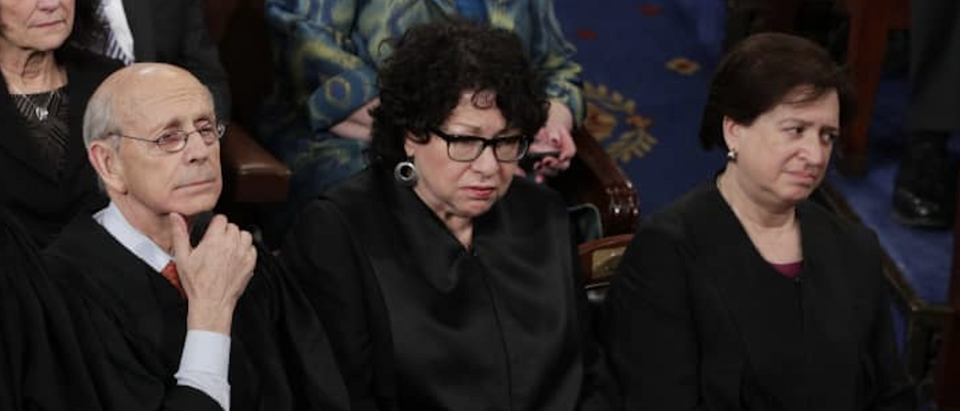Supreme Court Justice Sonia Sotomayor claimed that Matthew Shephard, a gay man, was killed because of “who he was” in her dissenting opinion about a compelled speech case involving LGBT couples.
The Supreme Court ruled in a 6-3 decision Friday that Christian web designer Lorie Smith does not have to create wedding websites for same-sex couples and forcing her to do so would violate her First Amendment rights. Smith, the owner of 303 Creative, challenged Colorado’s anti-discrimination law prohibiting public accommodations from restricting services based on sexuality.
Sotomayor dissented, arguing that granting Smith her religious liberty would lead to companies refusing to serve black individuals. “A website designer could equally refuse to create a wedding website for an interracial couple, for example,” she said. “How quickly we forget that opposition to interracial marriage was often because ‘Almighty God . . . did not intend for the races to mix.'”(RELATED: Satanic Temple To Host ‘Let Us Burn’ Events At State Capitols To Promote ‘Religious Liberty’)
in her dissent today, Sotomayor cites the death of Matthew Shepard as evidence of a hate crime. Someone should let her know that Shepard was mostly likely killed not because of his sexual orientation, but that he was a drug dealer who was killed by another drug dealer. pic.twitter.com/MQMzQexQly
— Joe Gabriel Simonson (@SaysSimonson) June 30, 2023
“A social system of discrimination created an environment in which LGBT people were unsafe. Who could forget the brutal murder of Matthew Shepard? Matthew was targeted by two men, tortured, tied to a buck fence, and left to die for who he was,” Sotomayor wrote, citing an October 1998 article by the Casper Star-Tribune.
Shepard’s brutal 1998 murder has become a rallying point for LGBT activists who say it exemplifies the perceived discrimination they suffer due to their sexual orientation.
The Matthew Shepard and James Byrd Jr. Hate Crimes Prevention Act enacted by Congress in 2009 was named in his honor. The legislation “provides funding and technical assistance to state, local, and tribal jurisdictions to help them to more effectively investigate and prosecute hate crimes.”
in her dissent today, Sotomayor cites the death of Matthew Shepard as evidence of a hate crime. Someone should let her know that Shepard was mostly likely killed not because of his sexual orientation, but that he was a drug dealer who was killed by another drug dealer. pic.twitter.com/MQMzQexQly
— Joe Gabriel Simonson (@SaysSimonson) June 30, 2023
While many claimed that Shepard was killed by homophobic men he met by chance in a bar, investigative journalist Stephen Jimenez claimed in 2013 that Shepard knew his murderers, Aaron McKinney and Russell Henderson, before the alleged hate crime, according to The Guardian.
Jimenez discovered that Shepard was likely involved in Laramie, Wyoming’s crystal meth subculture when he was an openly gay student at the University of Wyoming. Shepard allegedly had a history of depression, drinking problems, crystal meth usage and a series of sexual misadventures, the Guardian reported.
“Shepard’s sexual preference … certainly wasn’t the motive in the homicide,” police investigator Ben Fritzen said, according to Jimenez. “What it came down to really is drugs and money.”
Interviews with police investigators, the murderers, and the murderers former girlfriends reveal that McKinney and Shepard may have had a casual sexual relationship.
The killing likely occurred because McKinney believed Shephard had access to $10,000 of meth and intended to beat Shepard for information about the meth’s whereabouts.
In McKinney’s drug-impaired state, the beating become lethal, according to Jimenez’s reporting. Jimenez, who is gay, received pushback from the Matthew Shepard foundation and other critics for his telling of Shepard’s story.


